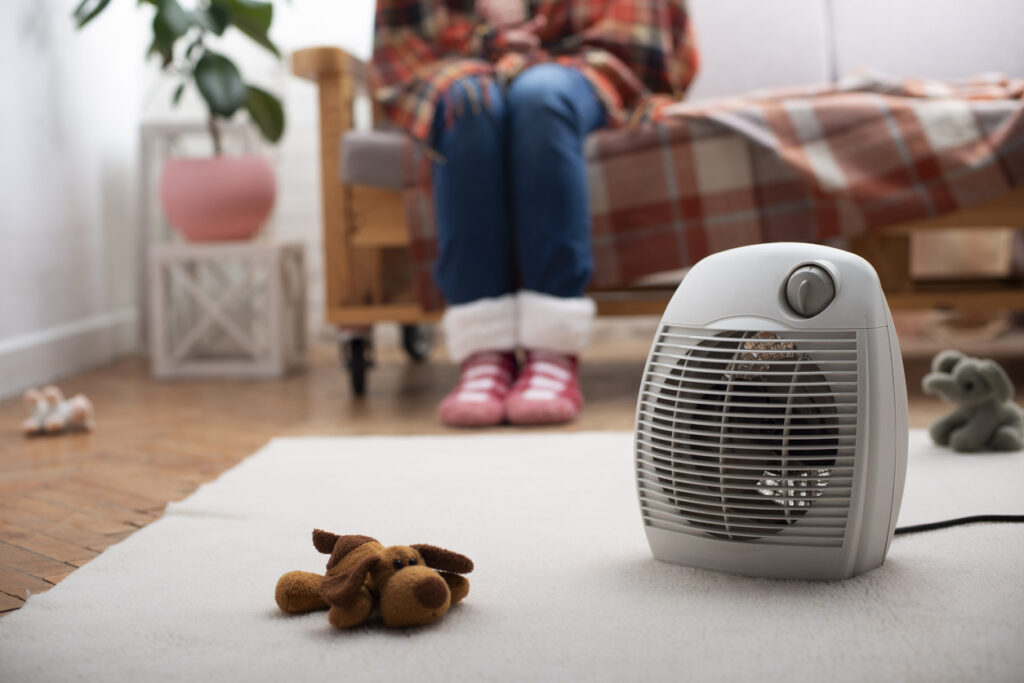Space heaters offer a convenient and cost-effective way to supplement a home’s main heating source and improve comfort. They increase the warmth inside a home and can offer temporary heat in a workshop, shed, or garage.
But shopping for the best, most energy-efficient model can be challenging. If you’re in the market for a new space heater, here are some key elements to consider.

Room Size and Heating Capacity
Space heaters come in various sizes and power options. Rule of thumb states that 10 watts per square foot is needed to maintain comfortable warmth. Therefore, a 120-square-foot room would require a 1,200-watt space heater.
Small desktop models are between 200 and 400 watts, which is just right for direct heat in a home office or basement. A space heater with a heat output of 1,500 watts is sufficient for a 15-foot-long by 10-foot-wide room, ideal for warming a bedroom, den, or living room. While heaters of 2,000 watts and up are available, they may need to be hardwired.
Energy Efficiency
Space heaters aren’t a replacement for central heating, but they can offer excellent efficiency if they are only needed to warm a room or two temporarily.
Various features deliver even greater energy-efficiency. For example, thermostats and adjustable heat settings allow for increased control and less energy waste. Sleep or auto-off timers can be set to turn the heater off after a preset period. And smartphone apps allow control via Wi-Fi to remotely turn on the space heater so a room can be warm when you’re ready to occupy it. Some models even offer voice activation via smart-home systems, allowing you greater control and maximum energy efficiency.
Safety Features
Some space heaters can become warm to the touch, so extra caution should be exercised, especially with children and pets around. Keep fabrics and soft furnishings at least three feet away from the heater and make sure it’s placed on a level, solid surface to prevent tipping over.
Most of today’s space heaters come with overheat protection that will turn off a space heater if it heats up internally to protect it from damage. Most models also have tip-over protection so the unit will automatically turn off if it is knocked over or falls.
Noise Level
Electric space heaters aren’t particularly loud, though the noise levels may vary. While they might make a little noise when first heating up, space heaters are generally quiet during regular operation.
And yet, no space heater, no matter how efficient, can provide the level of whole-house comfort your central heating system can. If you find yourself relying in your space heater more and more, it’s time to call Pann Home Services & Remodeling. From heating system repair and annual maintenance, to new system installation, our team of experts is ready to assist you with all your heating needs.









